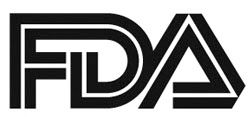FDA Approves Novel Diagnostic Assay to Accompany Encorafenib in Treatment of mCRC
The FDA has granted approval to the therascreen BRAF V600E Kit as a companion diagnostic to encorafenib, a BRAF inhibitor indicated for the treatment of adult patients with metastatic colorectal cancer harboring a BRAF V600E mutation, as detected by an FDA approved test, in combination with cetuximab after prior therapy.<br />

The FDA has granted approval to the therascreen BRAF V600E Kit (therascreen® BRAF V600E RGQ PCR Kit) as a companion diagnostic to encorafenib (Braftovi), a BRAF inhibitor indicated for the treatment of adult patients with metastatic colorectal cancer (CRC) harboring a BRAF V600E mutation, as detected by an FDA approved test, in combination with cetuximab (Erbitux), after prior therapy.1
“We are very excited about the launch of the new therascreen BRAF V600E Kit, our first companion diagnostic test to obtain FDA approval for the detection of a mutation in the BRAF gene and our third CDx approval in colorectal cancer. Using our new test to help guide treatment decisions in colorectal cancer will address a high unmet medical need among patients,” said Jonathan Arnold, vice president and head of Partnering for Precision Diagnostics at QIAGEN, in a statement. “The new therascreen BRAF V600E Kit will be available to accelerate the availability of innovations in precision medicine.”
The diagnostic assay is designed to assist in identifying which patients are eligible for treatment with encorafenib, considering the fact that BRAF mutations are drivers in about 15% of patients with mCRC. QIAGEN considers this another step forward in precision medicine for mCRC.
The therascreen BRAF V600E Kit is an in vitro diagnostic test that analyzes DNA extracted from tumor tissue using QIAGEN’s Rotor-Gene Q MDx, which uses florescent detection to measure nucleic acid signals in amplified DNA.
The approval for encorafenib plus cetuximab was another milestone for precision medicine in mCRC. The FDA granted the approval based on the phase III BEACON CRC trial of encorafenib, binimetinib (Mektovi), and cetuximab in BRAF V600E mCRC, in which encorafenib plus cetuximab achieved on overall survival (OS) of 8.4 months (95% CI, 7.5 to 11.0) and significant decrease in the risk of death as compared with the control group (HR, 0.60; 95% CI, 0.45-0.79; P <.001), according to results published in the New England Journal of Medicine. The control consisted of the investigator’s choice of either irinotecan plus cetuximab or FOLFIRI (irinotecan, fluorouracil [5-FU], and folinic acid [leucovorin]) plus cetuximab.
The triplet combination achieved a 9.0-month (95% CI, 8.0-11.4) OS compared with 5.4 months (95% CI, 4.8-6.6) with the control combination.
The ORR observed with the triplet combination was 26% (95% CI, 18%-35%) versus only 2% (95% CI, 0%-7%) in the control arm (P <.001). The doublet combination (encorafenib/cetuximab) demonstrated a higher ORR than the control group, which was 20% (95% CI, 13%-29%). The difference was deemed significant (P <.001).
In terms of progression-free survival (PFS), the triplet and doublet combinations were superior to the control combination at 4.3 months (95% CI, 4.1-5.2) and 4.2 months (95% CI, 3.7-5.4), respectively, versus 1.5 months (95% CI, 1.5-1.7) in the control group. Treatments in the BEACON CRC trial were tolerable with few discontinuations and fatalities.
Overall, the study included 665 patients who were randomized 1:1:1. Encorafenib was administered at 300 mg daily, binimetinib at 45 mg twice daily, and cetuximab at 400 mg/m2 as the initial dose then weekly at 250 mg/m2 in the triplet group.
The coprimary end points of the study were OS in the triplet arm and ORR. The secondary end points were OS in the doublet arm, PFS, duration of response, and safety.
References
- Qiagen launches therascreen BRAF test as companion diagnostic to a Braftovi (encorafenib) based regimen in metastatic colorectal cancer [news release]. Germantown, Maryland and Hilgen, Germany: Qiagen N.V.; April 15, 2020. https://bit.ly/3bf524Z. Accessed April 16, 2020.
- Kopetz S, Grothey A, Yaeger R, et al. Encorafenib, binimetinib, and cetuximab in braf v600e